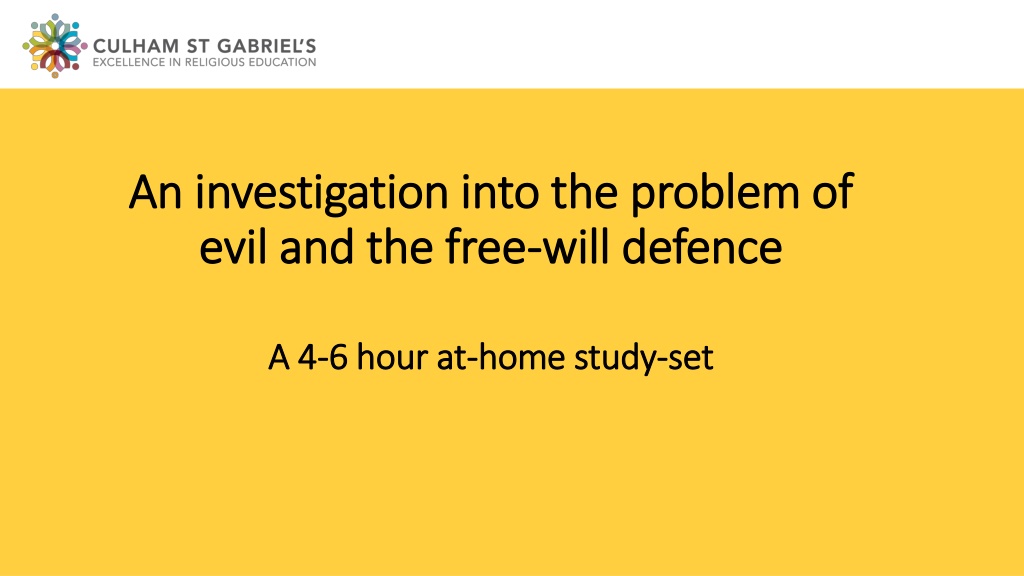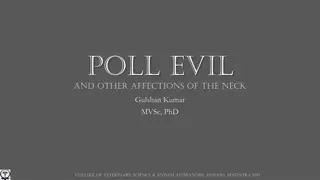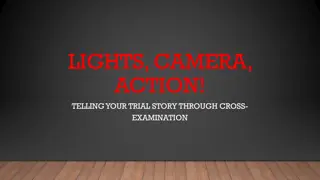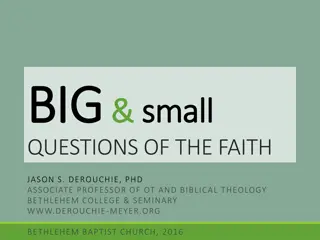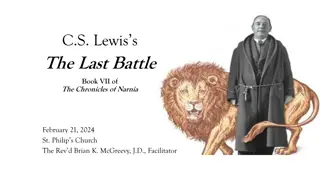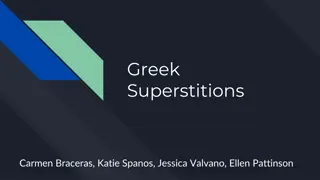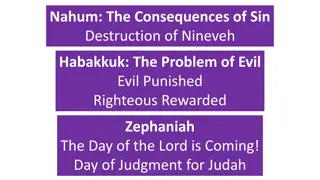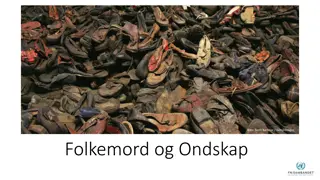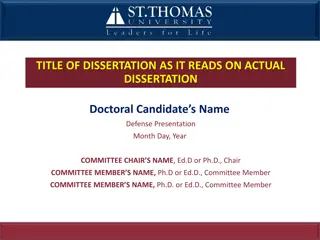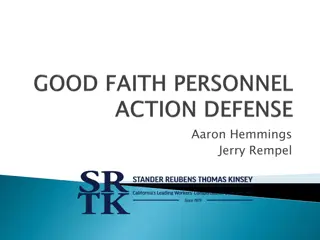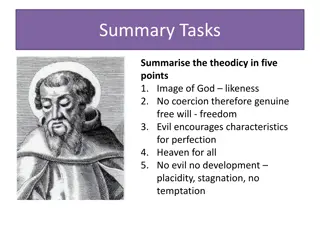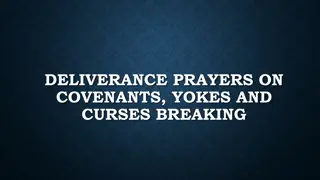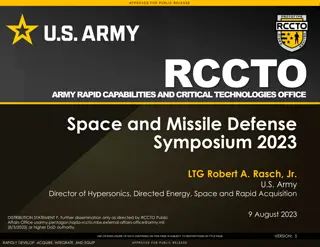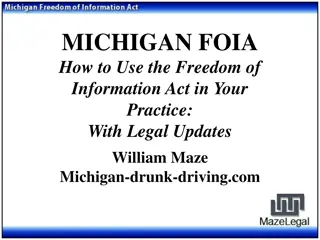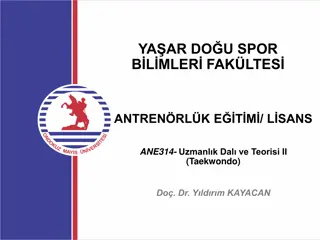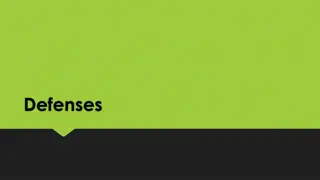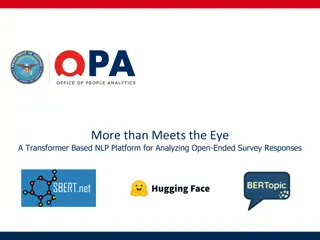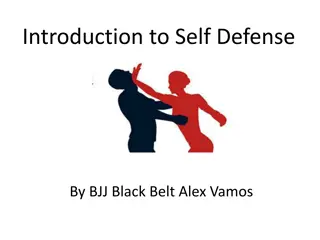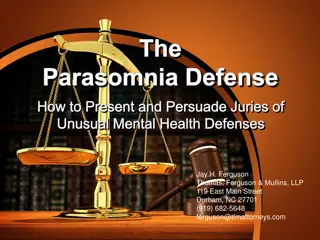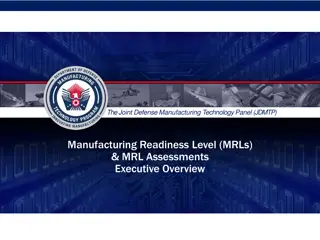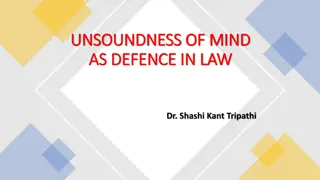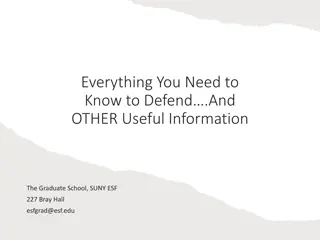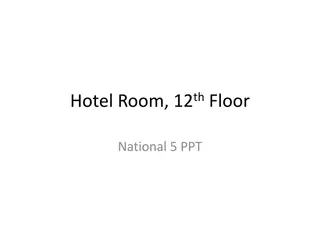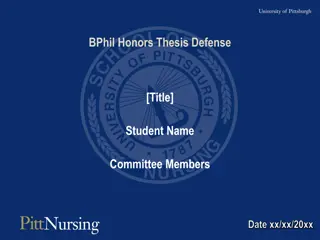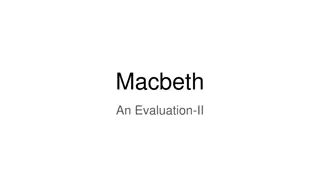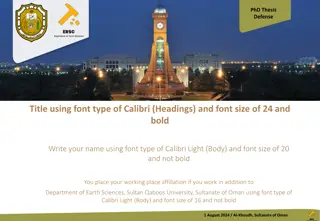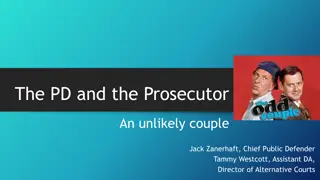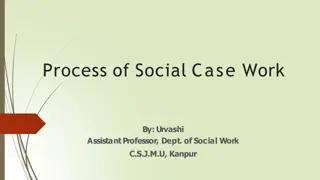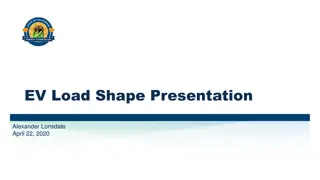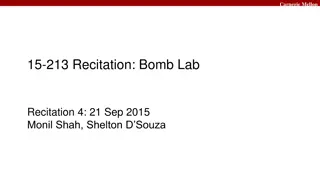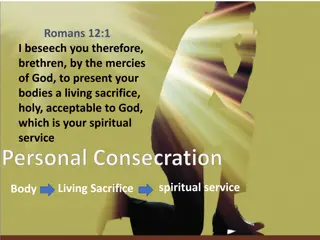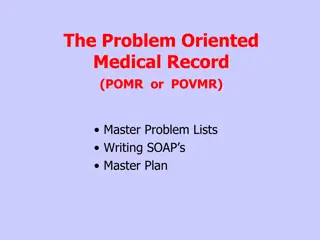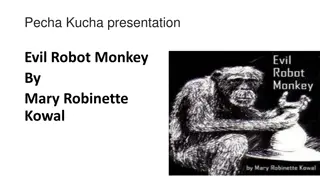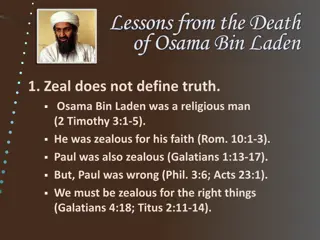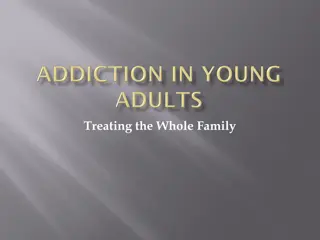Exploring the Problem of Evil and Free Will Defense: A Study Set
This at-home study set delves into the philosophical question of whether the existence of evil conflicts with the existence of God, alongside the free will defense. Drawing on research by Erik J. Wielenberg, students will engage with key questions, objections, and deepen their understanding of the philosophical implications. The resource encourages critical thinking and evaluation of complex ethical and religious concepts.
Download Presentation

Please find below an Image/Link to download the presentation.
The content on the website is provided AS IS for your information and personal use only. It may not be sold, licensed, or shared on other websites without obtaining consent from the author. Download presentation by click this link. If you encounter any issues during the download, it is possible that the publisher has removed the file from their server.
E N D
Presentation Transcript
An investigation into the problem of An investigation into the problem of evil and the free evil and the free- -will defence will defence A 4 A 4- -6 hour at 6 hour at- -home study home study- -set set
Introduction This at-home study-set is suited to philosophy and ethics components of A level religious studies courses. It draws on work by the philosopher Erik J. Wielenberg and should extend students knowledge and understanding beyond the standard text books. Find (and it may be useful to print) the report of Erik J. Wielenberg s research at https://www.reonline.org.uk/research/some-interesting-points-about-the- problem-of-evil-and-the-free-will-defence/.
Stage 1 Framing the questions Erik J.Wielenberg s research is on the following questions. Before you read it, spend some preliminary time thinking through the questions and noting down some first thoughts. Retain these notes for later. Does the existence of evil rule out the existence of God? Does the free-will defence stand up (that it is better to create free creatures, but freedom will always result in some evil actions)? If God, as morally perfect, cannot perform immoral actions, does this make a person who always freely performs morally good actions more moral than God? Or does God always do what is morally right freely, because there are no controls over God's actions?
Stage 2: engaging with the research, checking understanding Next, read carefully over the research report, allowing around thirty minutes for this. Students, you may then have questions to ask or points to clarify with your teacher an email exchange or skype call could be useful at this point. Second, to check understanding further, you should write brief (one-sentence) responses to the following questions and send them to your teacher for comment: 1. What is the key point of Alvin Plantinga s free-will theodicy? 2. What is Erik J. Wielenberg s objection to that point? 3. What does Kevin Timpe suggest about the problem? 4. Why does Erik J. Wielenberg reject Timpe s suggestion?
Stage 2: developing and deepening understanding Now that you have an outline map of the material, you can next begin to go more deeply into the philosophical issues. Draft a paragraph or two on each of the following questions, then send to your teacher for comment. If a perfect God exists, must it be true that God cannot freely perform any good actions? Or, must perfection mean that God always freely performs good actions?
Stage 3: summarising, linking to previous work and critically evaluating You should by now be ready to summarise and evaluate Wielenberg s arguments. Read back over the research report on Wielenberg s work and your previous written tasks, in order to consolidate what you have learned. Also, use your textbook or notes to revise Aristotle s Prime Mover concept. Then compose a response to the following question, and send it to your teacher for assessment. The essay should be around 3 A4 sides, not more than 5. a)Explain Erik J. Wielenberg sobjections to Alvin Plantinga s free-will theodicy. b) The concept of God is contradictory because God cannot freely perform morally right actions. Discuss, including reference to Aristotle's Prime Mover theory.
